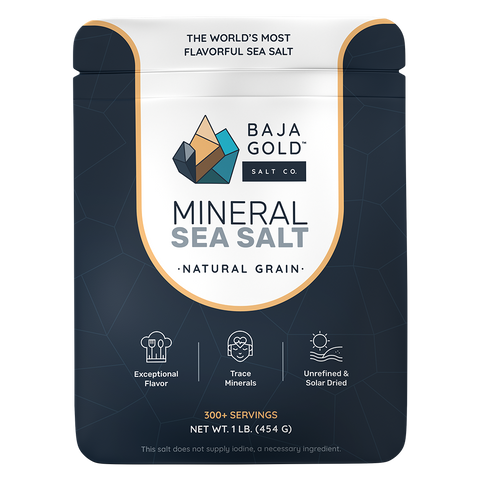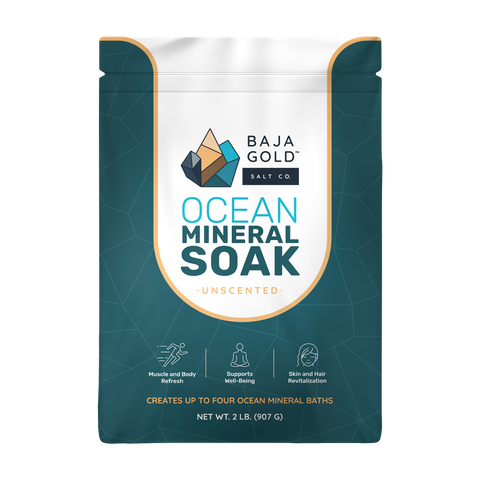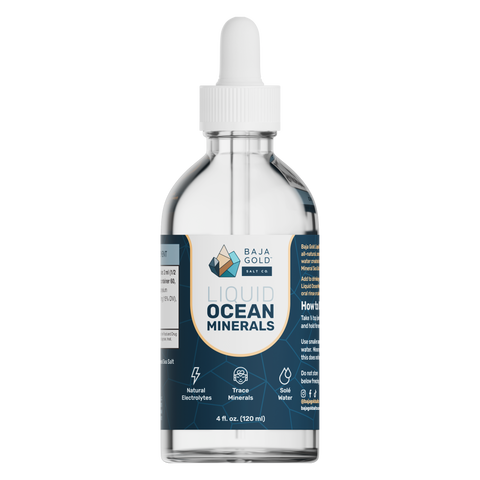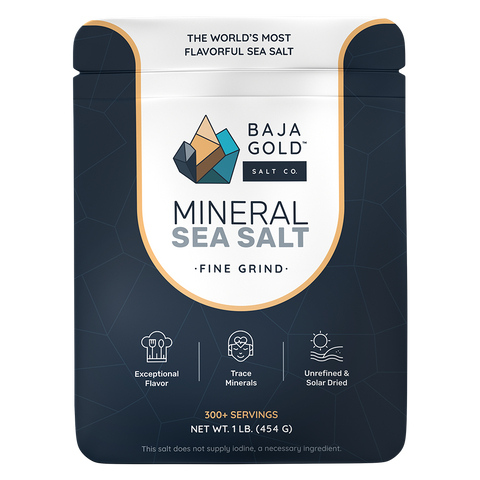Kosher Salt vs Sea Salt

Kosher salt usually refers to a larger crystal size used in cooking, while sea salt refers to salt sourced by evaporating seawater. Kosher salt may or may not be kosher certified and is typically pure sodium chloride, though some brands add an anti-caking agent.
Most people grab a container of salt from the grocery store without thinking much about it. But if you look closer, you’ll see all kinds of labels: table salt, kosher salt, sea salt, Himalayan salt, and more. Among these different types of salt, kosher and sea salt come up quite often, and their differences aren’t as straightforward as they seem.
The truth is, “kosher” can mean two different things. Sometimes it’s about religious certification, other times it’s about grain size. That distinction makes a big difference when you’re choosing the right salt for your kitchen and your health.
What Does “Kosher Salt” Really Mean?
“Kosher” means different things in different contexts.
Kosher Certification
Kosher certification is a religious designation. Any salt, whether from salt mines, evaporated from seawater, or refined into table salt, can be certified kosher if it’s processed under the supervision of a recognized rabbinic authority. Certification ensures the product complies with Jewish dietary laws (Kashrut), and packaging carries a recognizable certification symbol.
Kosher Salt in Cooking
In everyday cooking, “kosher salt” usually refers to a grain size rather than a certification. The term comes from the koshering process, where larger grains of salt were used to draw out blood and moisture from meat.
Over time, brands like Diamond Crystal and Morton Salt dropped the ‘-ing,’ and ‘kosher salt’ became shorthand for this larger, coarser crystal structure.
- Grain size: Flat, pyramidal, or flaky salt crystals that are easy to pinch and sprinkle.
- Usage: Ideal for seasoning meats, pasta water, or spice rubs because the larger crystals stick to food and dissolve evenly during cooking.
-
Nutritional profile: Typically pure sodium chloride, sometimes with an added anti-caking agent, and generally stripped of natural trace minerals.
Bottom line: “kosher salt” is more about how the salt looks and behaves than where it comes from.
What Is Sea Salt?
Unlike kosher salt, sea salt is defined by its source. It’s made by evaporating ocean water, often using solar drying methods that leave behind natural crystals. Depending on how the crystals are processed after harvesting, you might find:
- Fine sea salt: Great for baking, where precise measurement matters.
- Coarse sea salt: Works well for cooking or in grinders.
-
Flaky sea salt: A light finishing salt that adds crunch and visual appeal.
Because sea salt is less refined, it often retains trace minerals such as magnesium, calcium, and potassium. Even though it’s not a major source of nutrients, it adds subtle flavors and helps balance sodium levels per volume.
Can there be Kosher Sea Salt?
Yes. Kosher certification isn’t limited to one type of salt. Sea salt can be kosher certified if it meets the requirements set by rabbinic authorities. At Baja Gold, our sea salt is certified kosher (KMD Mexico) and is available in a natural grain size, similar to what cooks think of as kosher salt. That means it performs like kosher salt in recipes but takes it a step further by delivering the trace mineral benefits of unrefined sea salt.
Key Differences Between Kosher Salt and Sea Salt
Both kosher salt and sea salt are widely used in kitchens, but their differences go beyond labels.

Which Should You Choose?
Kosher salt is better defined by crystal size, not necessarily by certification or source. Sea salt is defined by its origin, ocean or sea water, and can preserve much of its natural mineral content. So, when it comes to kosher salt vs sea salt, there’s not necessarily a “good” vs “bad.” It’s all about understanding what each means and how it fits with your personal preference.
- Choose kosher salt if: you want easy handling, consistent texture, and reliable results when seasoning meats or pasta water.
- Choose sea salt if: you want more versatility, trace minerals, and deep flavor that enhances food with less sodium.
-
Choose Baja Gold if you want both: a kosher certified and trace mineral-rich sea salt with a natural grain size that performs similar to kosher salt in your cooking.
Where Baja Gold Fits
- Kosher Certified: Verified by KMD Mexico, so it meets kosher dietary standards.
- Natural Grain Size: Similar to what chefs and home cooks expect when they reach for “kosher salt.” (also available as fine grain)
- Sustainable Process: Renewable, sun-dried, and unrefined, with lower environmental impact than mined alternatives.
-
Trace Mineral-Rich: Harvested from the Sea of Cortez using solar evaporation, Baja Gold preserves magnesium, calcium, potassium, and other trace minerals.
The result? A delicious salt that’s versatile in the kitchen, ideal for everyday use, and backed by both certification and mineral value.



